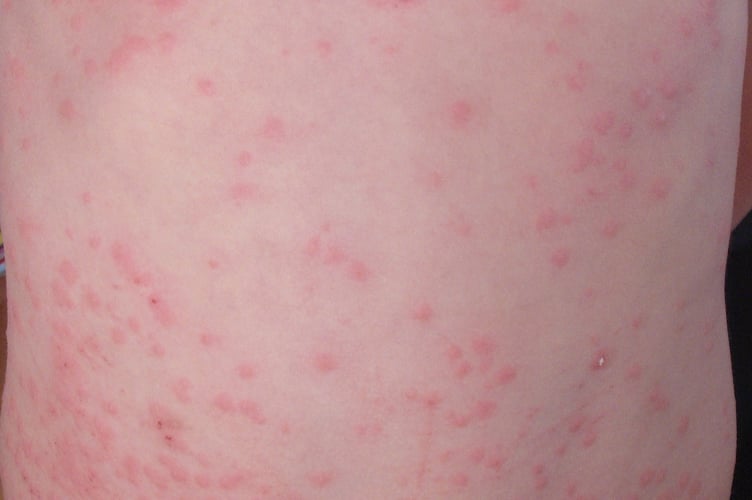The Isle of Man’s director of public health says there are no cases of measles on the island amid concerns after the death of a child in Alder Hey Hospital in Liverpool
The Merseyside hospital said the highly contagious virus was on the rise among young people in the region with a surge in those who are very sick.
No official details have been released about whether the child was being treated for other health problems or their vaccination status.
To date, a total of 17 children have been treated for the disease at Alder Hey since last month.
Some of the island’s sickest children are treated at Alder Hey but public health director Dr Matt Tyrer says there are no cases here.
He said: ‘We are aware of the rising cases of measles in England, especially London and Merseyside, and the sad death of a child at Alder Hey.
‘At this time we have not been notified of any measles cases on the island. We are working with health partners to monitor the situation and increase island preparedness in the event that we may see cases here.’
A joint report by the WHO and the UN children's fund, Unicef, recently found that the number of measles cases in Europe has reached its highest level in 25 years.
Measles is highly infectious and can result in life changing complications. It can spread very quickly in places such as nurseries, schools and healthcare settings if people have not had two doses of the measles, mumps and rubella (MMR) vaccine.

Measles can be especially serious for people in certain at risk groups including babies and small children, pregnant women, and people with weakened immunity.
The best way to protect yourself from measles is to get two doses of the MMR vaccine. If you are not sure if you or any of your family members need the MMR vaccine, check their Red Book, online via Patient Access or contact your GP practice.
If you or any family member has not had two doses you should contact your GP to arrange vaccination as soon as possible. The MMR vaccine is safe, effective and free, giving lifelong protection
Measles usually starts with cold-like symptoms - a high temperature, a runny or blocked nose, sneezing, a cough, red sore or watery eyes - followed by a non-itchy, red-brown rash about three to five days later. Some people may also get small white spots in their mouth.
If you suspect you or a family member has measles, phone your GP, or MEDS 6pm – 12am on weekdays, 24 hours at weekends. You must phone ahead if you suspect measles.
Share your views on this issue by emailing [email protected] for possible publication in our letters page. Be sure to include your name, address, and phone number for verification - these won’t be published, and anonymity requests will be respected. Whether you’re passionate about local issues or national debates, we welcome diverse opinions. Let us know what you think.

.jpeg?width=209&height=140&crop=209:145,smart&quality=75)
.jpeg?width=209&height=140&crop=209:145,smart&quality=75)

.jpeg?width=209&height=140&crop=209:145,smart&quality=75)